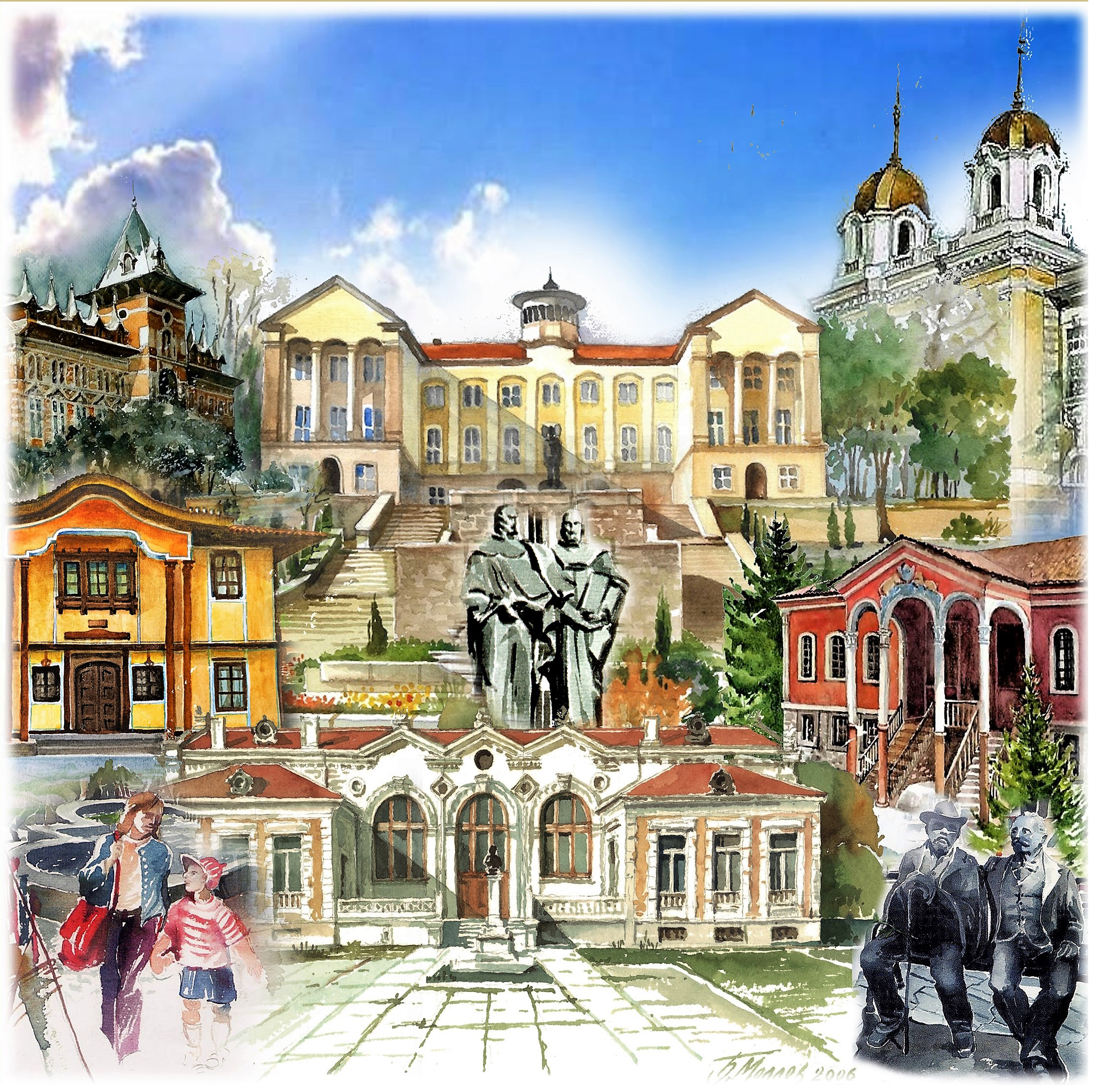We invite you on June 27 at 13:30 for the official opening at the Community Centre “Vasil Petleshkov”, town of. The exhibition “Architecture for Education and Culture”, specially prepared by arch.
Belin Mollov FORUM “BRATZIGOVO – THE STONE FLOW OF TIME” and presented in thirty panels with his watercolor paintings and information about the history of the buildings and their architects.
The exhibition will be on display at the Vasil Petleshkov Community Centre, Bratsigovo until the end of July this year.
ARCHITECT FOR EDUCATION AND CULTURE
SCHOOLS, COMMUNITY CENTRES, LIBRARIES, EDUCATIONAL CENTRES
Architectural heritage brings us the charm of bygone eras, educates and creates self-confidence for of belonging to what our predecessors created The idea of my exhibitions is to provoke interest in architectural monuments, buildings and ensembles that convey the charm of bygone eras, educate and maintain a sense of belonging to the environment in which we live.
Every building that today delights us and makes us feel proud to have been born and live in this city has its own history and destiny.
It was created by the inspiration of a creative person, a person we should know about, remember and honour. The topic of education and the environment in which it is carried out seriously excites me not only as an architect, but also as a father and grandfather and above all as a Bulgarian who is interested in the history and achievements of our people in this field. In 1885 every Bulgarian village gave dearly to have a school.
Then the poor Bulgarian people found the means for a school with a board of trustees.
In 1887, Bulgaria had a population of 3.15 million and there were almost as many schools as there are now.
In the years after the Liberation, the wealthy Bulgarians donated considerable funds and took great care to open new schools, to build school buildings with architecture and equipment following the example of the best European models, to find teachers and their maintenance, to send young people abroad to receive higher education, etc. In 1891, the first direct data on education in the world appeared, showing that Bulgaria ranked 13th in the world in the literacy rate of young people entering the barracks.
In 1911, already 37% of army recruits were literate – a level that was the highest in the Balkans, higher than Italy, and approaching that of Austria-Hungary.
During this period, the role of the Bulgarian school was not only to educate, but also to educate.
We Bulgarians can be very happy and proud of an invaluable architectural heritage in the field of education.
It is symbolic that after the Liberation, New Bulgaria entered Europe with enthusiasm, investing most of its resources, skills and efforts first of all in schools, community centres, libraries, theatres… Traditions were created according to European standards and the guidelines for development in the coming years were outlined.
The architectural environment of the educational process is being formed, which educates the young generations in the pursuit of knowledge, democratic culture and the values of freedom, equality and pluralism.
Today we are once again living in a time of great change and challenge.
Once again, Bulgarian education is striving to reach a level that can be compared with that in developing countries.
Society needs to rethink the spaces where the educational and upbringing process takes place, where we expect children and young people to become intelligent and capable people.
It is time to start modernizing Bulgarian education not only in terms of architecture and technological furnishings, but also in terms of an overall vision of development, studying best practices from the past and present, but with knowledge and an eye to the future.
 arch.
arch.
Belin Teokharov Mollov Expert with 50 years of experience in the field of urban planning and development. He was born in Ruse in 1946 and graduated as an architect in Sofia in 1969.
He has international qualifications in spatial and urban planning, local and regional governance, strategic planning and sustainable urban development.
He participated in the Council of Europe expert group for the development of the “Charter for Cities”. He has been Deputy Minister of the Ministry of Regional Development, Co-Chairman of the Regional Policy Negotiating Group under the Treaty on Bulgaria’s Accession to the EU, Adviser to the Minister of Regional Development, lecturer in urban planning.


